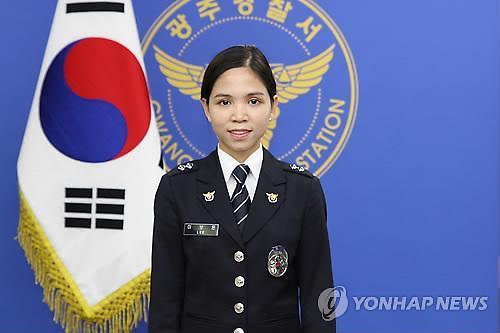
-Protecting the rights of the most vulnerable ethnic minorities is the future of unified Korea’s inescapable fate-
“Korean Dream” stories of first-generation Vietnamese policewomen reveal that South Korea is indeed a mature democracy that cherishes multiculturalism and aims to protect the most vulnerable ethnic minorities. In South Korea, multiculturalism is not merely a symbolic recognition of the resource-abundant and high-status middle class immigrants’ bourgeois glory. Its “true guardians” defend it by realistically accounting for the blood, sweat, and tears of the most vulnerable ethnic minorities, thus transforming BTS’s fanciful teenage romanticism to a righteous pluralistic reality.
Across South Korea, there are currently seven first-generation Vietnamese policewomen on active duty to protect their community from domestic violence and school violence. The policewomen’s language and intercultural skills are indispensable community assets cementing the South Korea-Vietnam relations as the bridge between the community and new-comer ethnic compatriots, especially immigrant Vietnamese wives suffering the consequences of homicides committed by their Korean husbands. Immigrant Vietnamese wives are one of the truly vulnerable ethnic minority groups of the South Korean society; the language barrier and lack of knowledge in the South Korean legal system hinder them not only from protecting themselves from crimes but also from properly exercising their rights.
The Korean Dream story of Nguyen Hong Mihn, who now works for the Jangseong County Police Department in South Jeolla Province, showcases how the seven Vietnamese policewomen have walked an arduous life path to achieve their goals. After graduating from Chosun University with a degree in economics, Mihn started her career as a part-time court translator that inspired her to later apply for her current position. For a self-determined woman like Mihn, being a mother of three children was not an impediment to achieving the goal at all. She successfully persevered in the ten months of dieting and physical training by managing to lose 40 kg of her postpartum weight gain. Such perseverance enabled her to endure three months of fitness and technical knowledge tests, six months of professional training, and another two months of internship. “Most Vietnamese brides don’t know much about Korean language and culture. The husbands force their wives to study their native language and culture, but they themselves are not willing to learn the mother tongue and culture of their wives, so it leads to misunderstanding and then comes violence;” Minh identifies the mopish compulsions of the South Korean husbands as the root of intercultural conflict from her onsite mediation experience. The real-life insights of Mihn and other Vietnamese policewomen will turn South Korea’s multicultural future to a glorious direction.
Nowadays, multicultural skills in protecting the rights of vulnerable ethnic minorities, as described above, are increasingly in demand in South Korean public services. Over the last decade, the country’s foreign resident population has doubled to nearly two million (approximately 4% of the total) in 2019 from one million in 2008. Among various ethnic groups that have transformed South Korea’s multicultural landscape, the Vietnamese form the most strongly bonded family ties with South Korean people. This is largely because the Vietnamese brides in South Korea make up the largest ethnic group of foreign brides with an annual influx of approximately 6000 women. Despite their continuous contribution to strengthening the bond between South Korea and Vietnam, the human rights situation of the Vietnamese brides’ is rather gloomy. According to the National Human Rights Commission of Korea, nearly 40% of them have been exposed to sexual abuse, verbal abuse, and coercion by their husbands who are obsessed with the “you are not in Vietnam” mentality. Unfortunately, the victims’ communities have been lenient in terms of punishing the megalomaniac criminals, with arrests accounting for 13%, indictment, 8.5%, and prison sentence, only 0.9% of the reported cases.